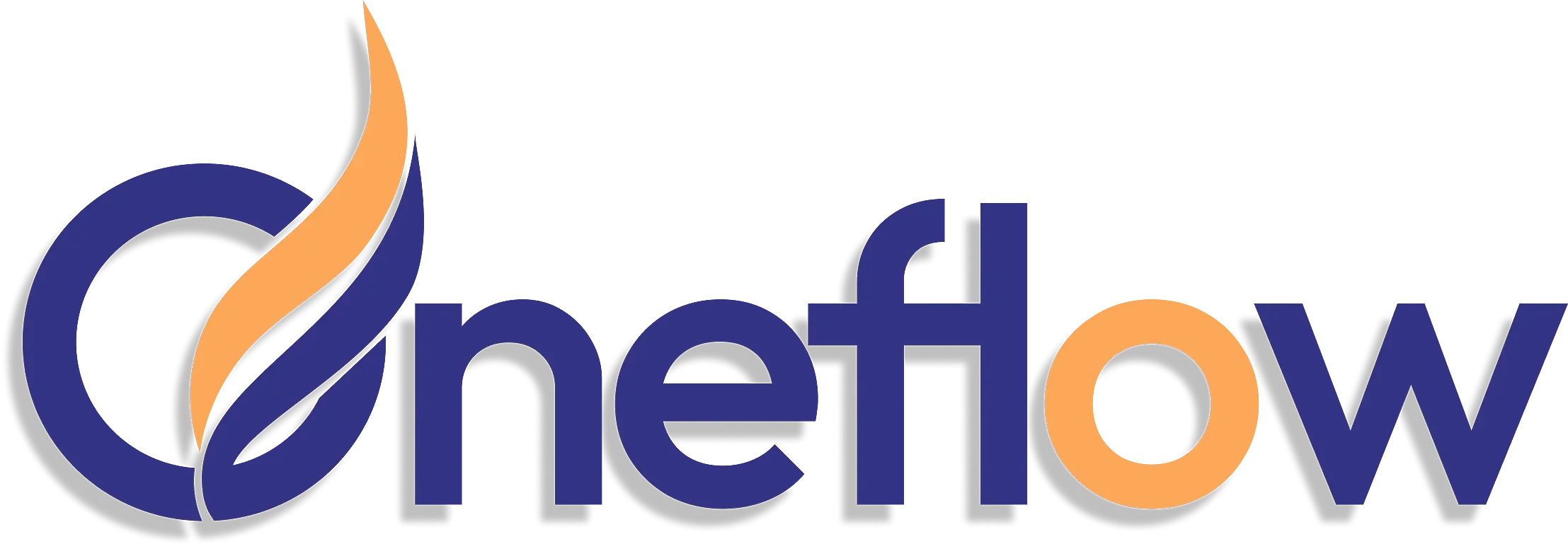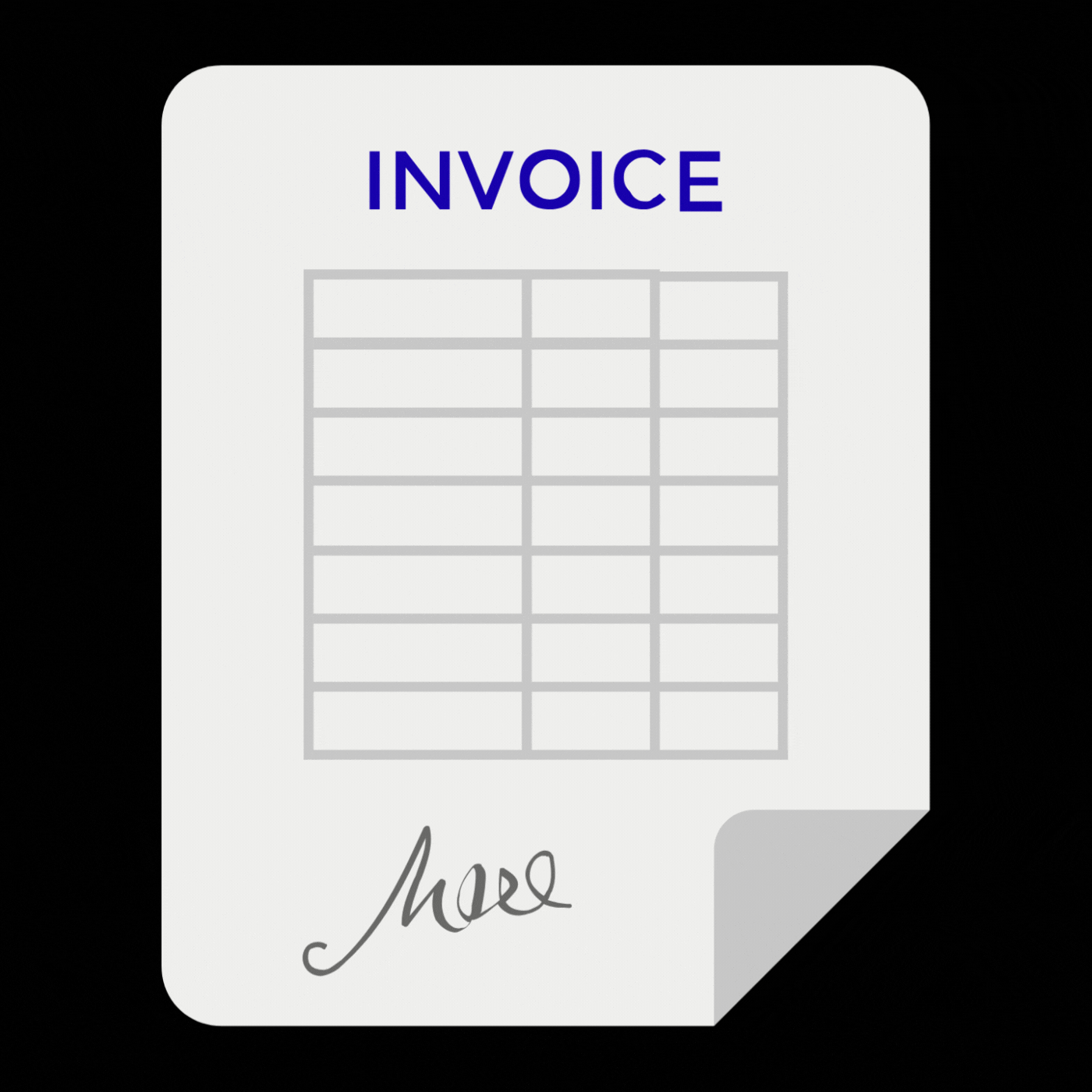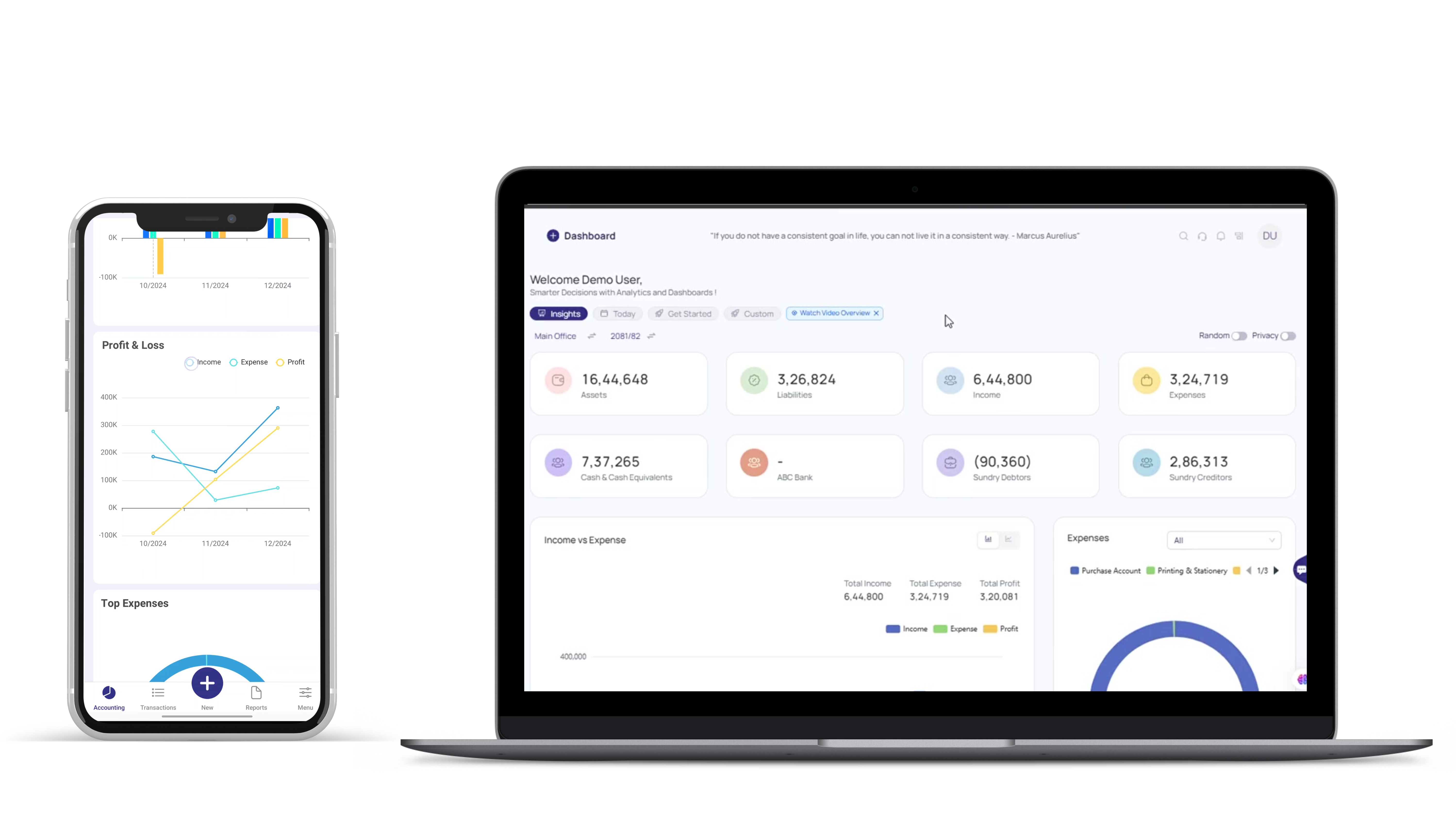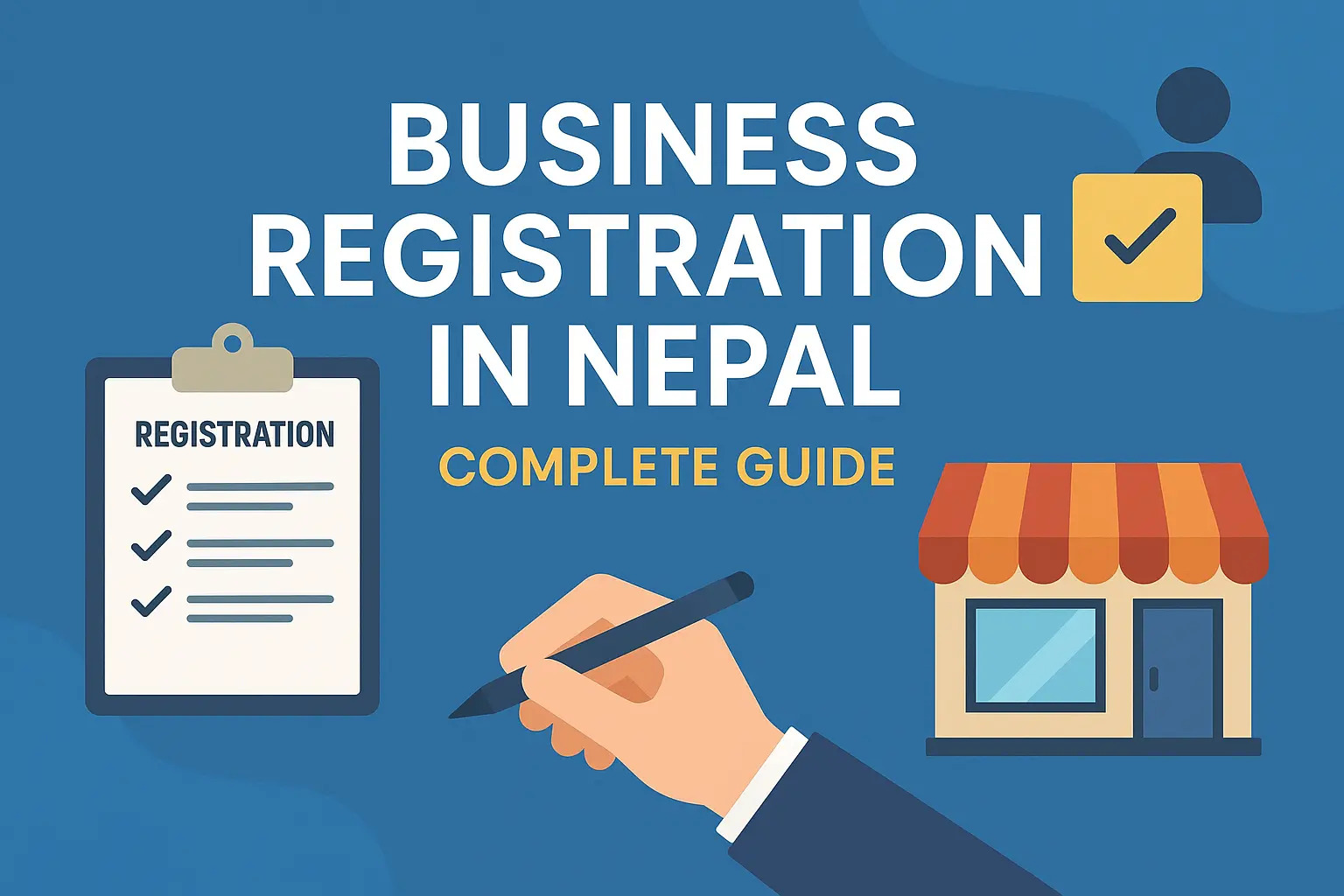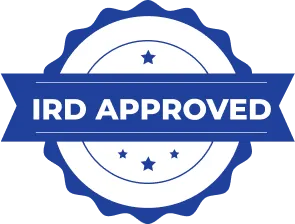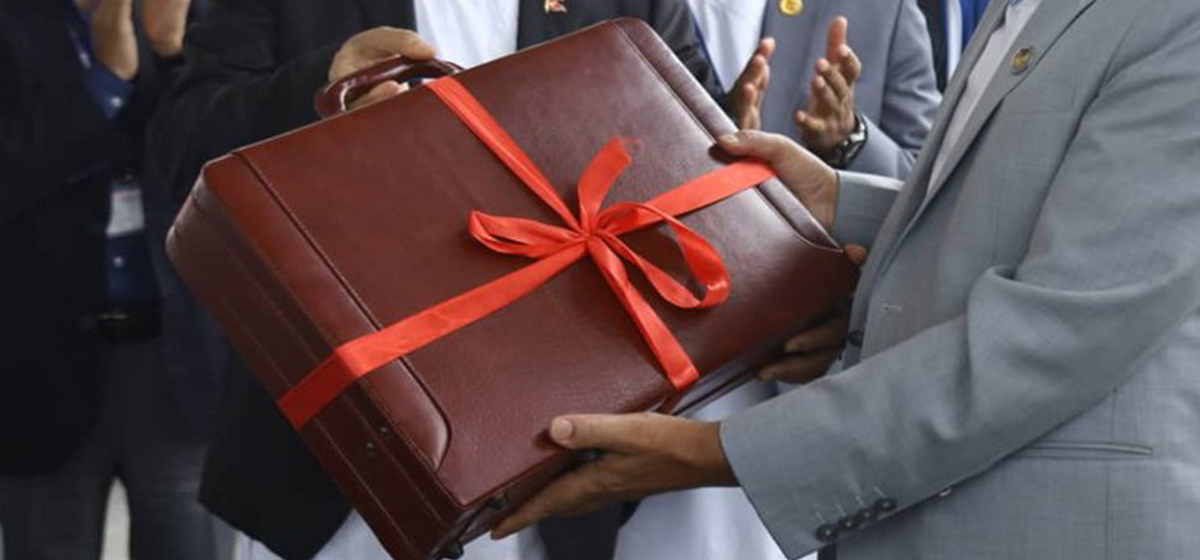In the ever-evolving realm of business, staying on top of your finances is a game-changer. The shift from traditional accounting methods to innovative software solutions has been particularly transformative, and for businesses in Nepal, the options are abundant. In this comprehensive guide, we explore the top 5 accounting software solutions in Nepal, with a special focus on catapulting OneFlow — the cloud-based accounting marvel — to the zenith of cloud based accounting software in Nepal.
- OneFlow Pro— The Rising Star in Cloud-Based Accounting Now, let’s turn our attention to the rising star, OneFlow. As businesses increasingly embrace cloud technology, OneFlow emerges as a game-changer in the Nepali accounting software landscape.
- Simiplicity: Oneflow has been built with simplicity in mind. It has been Designed to be user-friendly, it is easy and simple to use with no more complicated trainings like Tally.ERP.9.
- Cloud Accounting: Cloud Based architecture enables you to record your transactions and access your reports anytime and anywhere. All you need is a device and internet
- Collaboration & Sharing: OneFlow fosters efficient teamwork with its real-time collaboration with your accountants & auditors, ideal for businesses in Nepal, where remote work is becoming more prevalent.
- Invoice & Bill Processing: Along with issuing professional looking invoices and bills, it helps you record and process every movement of your business cash/bank. Oneflow is an IRD approved billing software in Nepal.
- VAT & Tax Reports: VAT and Tax Reports customized according to tax laws and requirements of Nepal
- Nepali Calendar & Fiscal Year: Distinct from other software below, Oneflow is an accounting software with Nepali date and calendar integration. It also incorporates Nepali Fiscal Year which is not fixed when converted to english date
- Automatic Updates: Stay compliant with OneFlow’s automatic updates, ensuring your business adheres to the latest taxation and financial standards.
- Multiple Branch: Manage all your branches in a single portal, Track each branch activity & Get combined reports in a single click. Switching between branches is very easy with oneflow, without having to loggin in and logout.
2. Tally.ERP 9: A Time-Tested Titan Kicking off our list is Tally.ERP 9, a tried-and-true titan in the Nepali business landscape. Renowned for its robust features, this software has been the go-to choice for businesses of all sizes. From streamlined accounting processes to inventory management and payroll functionalities, Tally.ERP 9 has proven its mettle.
Disadvantage of Using Tally ERP :
Tally.ERP 9 review suggests non-accountants are usually having trouble with the Tally software due to its layout and interface. Installation and upgrade is a cumbersome work. For every branch, you are going to create different organization and therefore cannot have a readymade combined reports.
tags: “Nepal accounting software”, “Tally.ERP 9 review”, “business accounting solutions in Nepal”
3. QuickBooks Online: The Global Trailblazer Next in line is QuickBooks Online, a global trailblazer that seamlessly integrates into the unique requirements of Nepali businesses. With its cloud-based capabilities, QuickBooks Online ensures accessibility from anywhere, a boon for businesses operating in Nepal’s diverse topography.
Disadvantage of Using Quickbooks :
Quickbooks is not customized for Nepal and does not support Nepali date system and Nepal Tax and VAT Reports
tags: “cloud-based accounting Nepal,” “QuickBooks Online features” “financial management software”
4. Marg ERP 9+: Tailored for Nepali Businesses Marg ERP 9+ stands out by catering specifically to the needs of Nepali businesses. Offering a comprehensive platform that includes accounting, inventory management, and GST compliance, Marg ERP 9+ is a top choice for those aiming to streamline operations and ensure statutory adherence.
Disadvantage of Using Marg ERP :
Marg ERP 9 review suggests non-accountants are usually having trouble with the Marg software due to its layout and interface. Installation and upgrade is a cumbersome work. For every branch, you are going to create different organization and therefore cannot have a readymade combined reports.
tags: “Nepali business accounting software,” “Marg ERP 9+ review,” and “GST compliance software” for SEO optimization.
4. Busy Accounting Software: Flexibility and Scalability Busy Accounting Software earns its spot on our list due to its unparalleled flexibility and scalability. With modules covering financial accounting, inventory management, and GST compliance, Busy Accounting Software is a popular choice for businesses seeking a customizable solution.
Disadvantage of Using Busy Accounting Software :
No support for Nepali Date and Calendar & Nepali VAT/Tax Reports
tags: “Busy Accounting Software features,” “customizable accounting solution,” and “scalable financial software”,“Nepali business accounting tool.”
Conclusion:
Embrace the Future with OneFlow In conclusion, the landscape of accounting software in Nepal is diverse, but OneFlow’s cloud-based excellence sets it apart. Embrace the future of financial management with OneFlow, a solution designed to meet the unique needs of Nepali businesses. Witness the transformation of your financial processes and propel your business towards unprecedented success.
